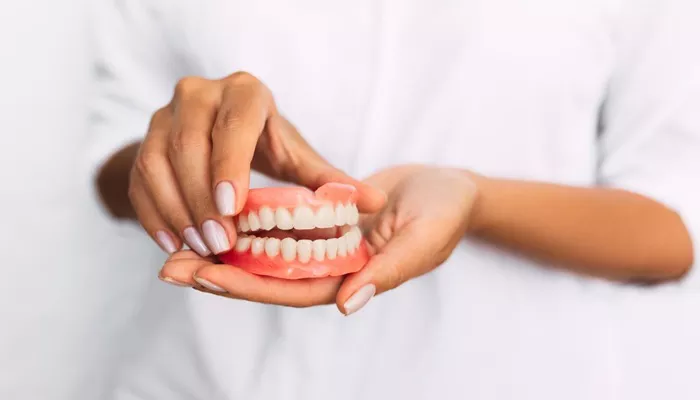Alveoloplasty is a common dental surgical procedure performed to reshape and smooth the jawbone before placing dentures or other dental prosthetics. Patients who are about to receive dentures often wonder whether alveoloplasty is necessary and how it impacts the fit and comfort of their new teeth.
In this article, we will discuss what alveoloplasty is, its benefits, when it is required, and whether it is necessary for successful denture placement.
What Is Alveoloplasty?
Alveoloplasty is a surgical procedure performed by a dentist or oral surgeon to reshape the alveolar ridge—the bony ridge that holds the teeth. When teeth are extracted, the jawbone may develop uneven or sharp edges, which can make wearing dentures uncomfortable or even impossible. Alveoloplasty smooths these irregularities to create a more suitable surface for dentures or other restorations.
Why Is the Jawbone Irregular After Tooth Extraction?
After a tooth is removed, the bone that once supported the tooth undergoes changes:
Bone Resorption – The body naturally begins to resorb (break down) the bone where the tooth was removed, which can cause the ridge to become uneven.
Sharp Bone Edges – Some areas of the jawbone may develop sharp or protruding edges, making it difficult for dentures to fit properly.
Irregular Healing – If multiple teeth are extracted at once, the healing process may create an uneven surface, leading to discomfort when wearing dentures.
Alveoloplasty corrects these issues, ensuring a smoother and more uniform jawbone structure.
When Is Alveoloplasty Necessary for Dentures?
Not every patient who gets dentures needs alveoloplasty, but in some cases, it is highly recommended or even required for a comfortable and functional fit.
1. After Multiple Tooth Extractions
When several teeth are extracted in a row, the jawbone can develop ridges and uneven areas that interfere with denture stability. Alveoloplasty helps smooth these areas to create a better-fitting base for the denture.
2. If the Jawbone Has Sharp Edges or Protrusions
Sharp or bumpy areas of the jawbone can cause irritation and sores when dentures rest on them. Alveoloplasty removes these irregularities to prevent pain and discomfort.
3. To Improve Denture Retention and Stability
Dentures sit on the gums and underlying bone, meaning that an even ridge provides a more stable base. Alveoloplasty ensures the denture fits securely, reducing the risk of slipping or movement.
4. When There Are Significant Bone Defects
Some patients have bone defects due to trauma, gum disease, or previous extractions. If the jawbone is too irregular, the denture may not fit properly, making alveoloplasty necessary.
5. Before Implant-Supported Dentures
If a patient is receiving implant-supported dentures, a smooth and even jawbone is crucial for successful implant placement. Alveoloplasty helps create the ideal bone structure for implants to integrate properly.
Benefits of Alveoloplasty Before Getting Dentures
1. Enhances Denture Comfort
A smooth and even ridge prevents painful pressure points and irritation from the denture.
2. Improves Denture Fit
A properly contoured jawbone allows the denture to sit more securely, improving function and aesthetics.
3. Reduces the Risk of Sore Spots and Ulcers
Sharp bone edges or irregularities can cause friction, leading to painful sores under the denture. Alveoloplasty eliminates these risk factors.
4. Speeds Up Healing After Tooth Extraction
By smoothing the bone immediately after extractions, alveoloplasty promotes faster and more predictable healing, reducing the likelihood of complications.
5. Increases Denture Longevity
Well-fitting dentures are less likely to cause pressure-related bone loss over time, preserving the ridge for a longer period.
Can Dentures Be Made Without Alveoloplasty?
Yes, dentures can sometimes be made without alveoloplasty, but the results may not always be ideal. Patients with naturally smooth and well-formed jawbones may not need the procedure. However, if the jawbone has significant irregularities, skipping alveoloplasty may lead to discomfort, poor denture fit, and frequent adjustments.
What to Expect During Alveoloplasty
1. Consultation and Planning
Before performing alveoloplasty, the dentist or oral surgeon will evaluate the jawbone using X-rays or digital scans. They will determine if the procedure is necessary and discuss the best approach.
2. The Surgical Procedure
Alveoloplasty is usually performed under local anesthesia to numb the area, though sedation may be available for anxious patients.
The dentist or surgeon makes small incisions in the gums to access the bone.
Irregular bone areas are carefully reshaped and smoothed using specialized instruments.
Once the jawbone is contoured, the gums are sutured back in place to heal.
3. Recovery and Healing
Most patients recover within 1 to 2 weeks, depending on the extent of the procedure.
Swelling and mild discomfort are normal but can be managed with pain relievers and ice packs.
Patients should follow a soft diet for a few days to avoid irritation.
Good oral hygiene is essential to prevent infection and promote healing.
Are There Risks Associated with Alveoloplasty?
Alveoloplasty is a safe and routine procedure, but as with any surgery, there are potential risks:
Temporary Swelling and Bruising – Some patients may experience mild swelling or bruising around the surgical site.
Minor Bleeding – A small amount of bleeding is normal but should stop within a few hours.
Infection – Proper aftercare and antibiotics (if prescribed) help prevent infections.
Nerve Sensitivity – In rare cases, there may be temporary numbness or sensitivity in the treated area.
Most of these risks can be minimized by following the dentist’s post-surgery instructions carefully.
How Much Does Alveoloplasty Cost?
The cost of alveoloplasty varies based on several factors:
- The extent of the procedure (single area vs. full jaw)
- The dentist’s or oral surgeon’s experience
- Location and clinic fees
On average, alveoloplasty can range from $250 to $2,500, depending on complexity. Some dental insurance plans may cover part of the cost, especially if it is deemed necessary for dentures.
Conclusion
Alveoloplasty is an important procedure that can significantly improve the comfort, fit, and longevity of dentures. While not every patient requires it, those with uneven jawbones, sharp ridges, or multiple tooth extractions can benefit greatly from the surgery.

